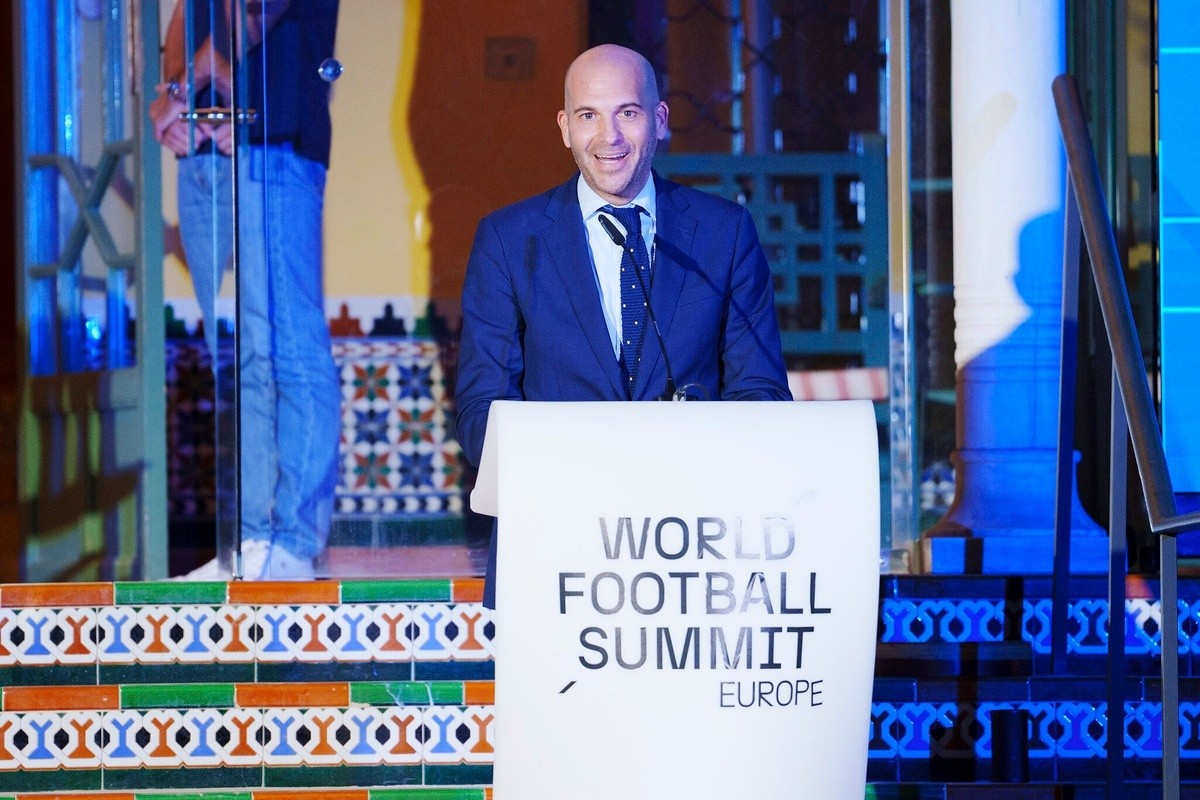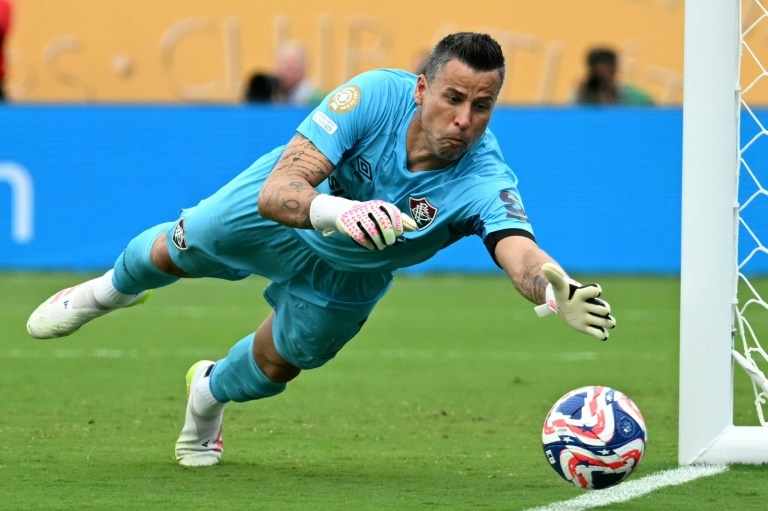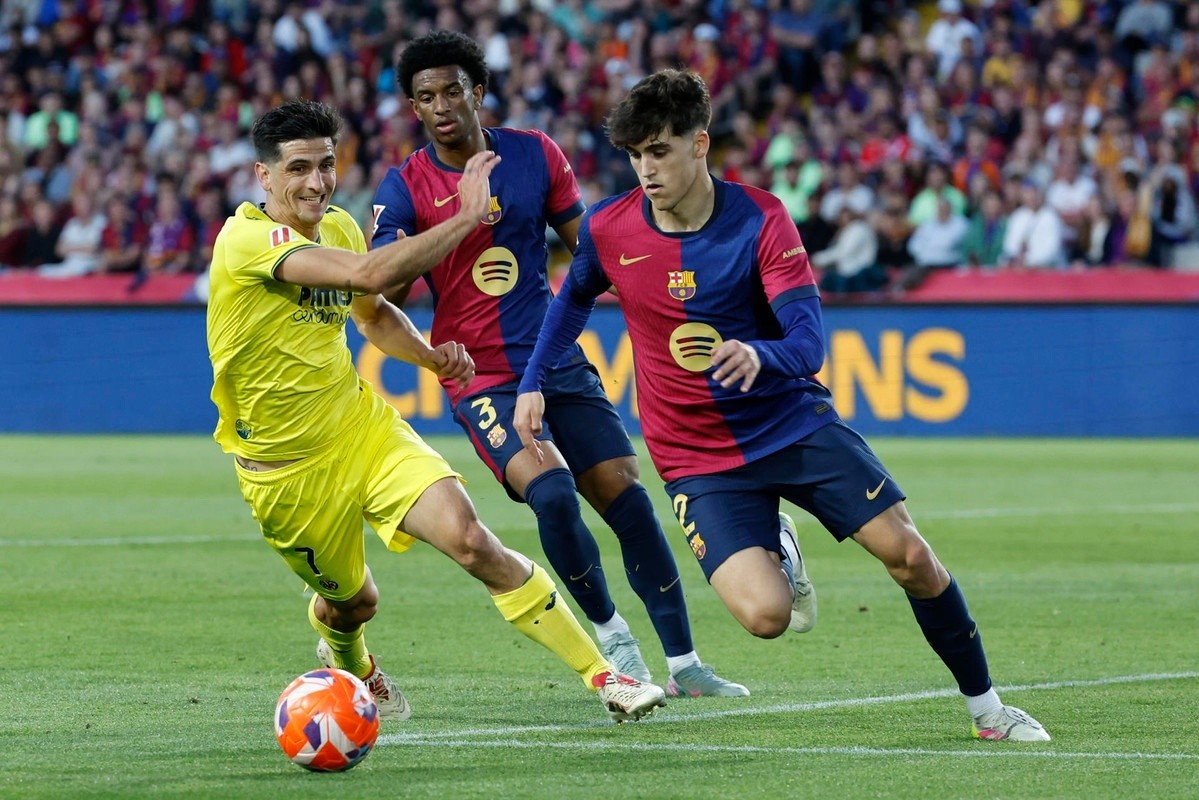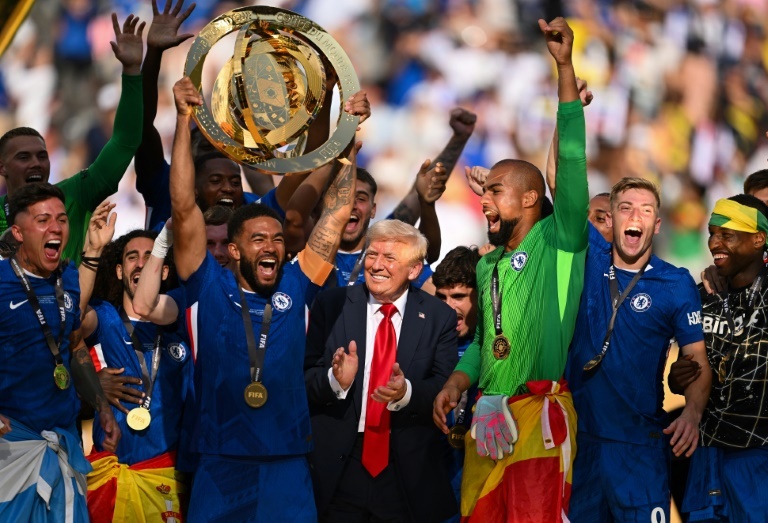“The transformation of Saudi Arabia goes far beyond the visible” - Interview with Jan Alessie (WFS)

In the days leading up to the World Football Summit in Riyadh, BeSoccer chats with its co-founder and CEO: “The presence of WFS will give the Saudi industry access to an international ecosystem of industry leaders, which will drive the exchange of ideas and the identification of areas for improvement.”
10 months ago
The before and after of football since the World Football Summit entered the industry almost a decade ago, will experience a new point of propulsion on 2nd and 3rd December, when Riyadh will be decked out to host one of its new events; this time, the WFS Asia. BeSoccer, invited to this weekend that will become the epicentre of planet football, talks to its co-founder and CEO, Jan Alessie, who details the expectations of the meeting and shares his radiography of the present and future of the booming Saudi football:
- WFS is travelling to Saudi Arabia, a new important frontline in the world of football. What are your objectives for the event?
- The main objective of WFS Asia in Riyadh is to establish a link between the Asian and Middle Eastern football industry and the rest of the world, fostering an exchange of ideas, knowledge and opportunities. We want our event to be a space to discuss the key challenges and opportunities facing football, with a special focus on innovation, sports tourism, the impact of football on the economy and the integration of new technologies. In addition, this event represents a unique opportunity for global industry leaders to learn first-hand about the ambitious project Saudi Arabia is undertaking to position itself as a key epicentre of world football.
- What is your current assessment of the state of Saudi football as an industry?
- Saudi football is at an unprecedented stage of expansion. The investment in infrastructure, the arrival of world-class players and the increasing professionalisation of the league are clear indicators of a well-defined strategy that wants to have a long-term impact. However, beyond the visibility generated by the stellar signings, it is also key to highlight the efforts being made to strengthen the development of its youth academy, both in terms of training young talent and the consolidation of structures and management systems within the clubs.
- What lessons and improvement processes do you think Saudi football can learn from the presence of the WFS in Riyadh?
- The presence of WFS Asia in Riyadh will give the Saudi industry access to an international ecosystem of industry leaders, which will drive the exchange of ideas and the identification of areas for improvement. From fan engagement strategies, to implementing technology to optimise team performance, the lessons to be learned from such events are endless. In addition, exposure to more established leagues can help lay the groundwork for a league of relevance in the global football ecosystem.
- You have already held events and editions in various parts of the world. What are the particularities of football in Asia that you don't find in other regions?
- Asia and the Middle East are regions of immense cultural and economic wealth, and football here is undergoing an unprecedented process of evolution. These regions are noted for their ability to adapt quickly to change, while at the same time being proactive in adopting emerging technologies, experimenting with new competition formats and seeking international partnerships to enhance their growth. In the Middle East, in particular, we see a strong commitment to investing in quality infrastructure and developing local talent, factors that are shaping a unique and dynamic landscape that we do not find with the same intensity in other parts of the world.
- WFS has always been a global meeting point, but bringing the event from Spain to Saudi Arabia is also an important qualitative leap for...
- To strengthen our mission to connect the football industry globally. By bringing WFS to Saudi Arabia, we seek not only to expand our footprint, but also to contribute to the growth of a market that is becoming a relevant player in the global ecosystem. This step represents a qualitative leap because it allows us to offer a high-level platform in a region with great potential, facilitating the creation of synergies and the exchange of knowledge in a unique and forward-looking environment.
- Saudi Arabia has been at the epicentre of world football for the last few years because of the big-name signings in the Saudi league. That's the tip of the iceberg, but what's going on underneath in Saudi football in terms of investment, infrastructure and more professional staff to make it more than just a showcase?
- The signing of big stars is the tip of the iceberg, but Saudi Arabia is undergoing a transformation that goes far beyond the visible. I have seen first-hand how the country is investing in the creation of a comprehensive sporting ecosystem, from significant infrastructure improvements to ambitious youth development programmes and the professionalisation of the administrative and technical structures of its clubs. The objective is clear. We want sports to be able to contribute between 2.5% and 3% to the national GDP by 2030, consolidating its role in the country's economy. In addition, there is a determined effort to boost women's football, with a 90% increase in the number of female players from 2020. All this responds to a strategic vision that seeks to position Saudi Arabia as a global benchmark within the sports industry in the coming years.
- To what extent can the impact of Cristiano Ronaldo and Neymar on Saudi football be calculated?
- The impact of players like Cristiano Ronaldo and Neymar goes beyond what happens on the pitch. Their presence in the Saudi League has captured global attention, attracting not only fans, but also international investors and brands, raising the profile of Saudi football and driving the development of more sophisticated marketing and merchandising strategies. Moreover, their influence has catalysed to inspire young talent and encourage further professionalisation of the league and its structures. The development of Saudi Arabia's academies is a cornerstone of their project, even if the attention is being taken away from the stars.
- The World Cup in Saudi Arabia is 10 years away. Plenty of time for the growth that such an event requires, right?
- Certainly, 10 years is an ideal period to carry out a sustainable and profound transformation, but the reality is that the initiatives started with a view to hosting the Asian Cup in 2027. So I think they would be fully prepared to host the 2034 FIFA World Cup. Organising a major tournament such as a World Cup involves not only building and improving infrastructure but also professionalising all the stakeholders involved, from club management to the development of talent development programmes. This time also provides an opportunity to consolidate a football culture and to position the country as an attractive destination for both players and fans from all over the world.
- We talked about the road to maturity that is needed in Saudi Arabia, and WFS is just about to celebrate its 10th anniversary. How do you see this process of consolidation of your event?
- In these almost 10 years, we have transformed WFS from a local event in Spain into a truly global meeting point for the football industry. We have adapted to the needs of different markets, and we have learned to offer relevant content and experiences that resonate in each region. This expansion has been a process of consolidation that has allowed us to create valuable connections, foster an ecosystem of knowledge and innovation, and strengthen our mission to drive positive change in football globally.
- Please give us a summary of the latest data and developments you have achieved in the World Football Summit community.
- Over the years, WFS has built an international community of more than 120,000 sports industry professionals, and we have organised events around the world, each with its own particular focus but with the common goal of improving the future of football. In addition, we have launched a content branch that is a benchmark in the sector thanks to our newsletter, podcast, and reports that we publish on topics that are impacting the industry... all intending to be a priority resource for all professionals who are interested in the business that revolves around football.
- WFS is travelling to Saudi Arabia, a new important frontline in the world of football. What are your objectives for the event?
- The main objective of WFS Asia in Riyadh is to establish a link between the Asian and Middle Eastern football industry and the rest of the world, fostering an exchange of ideas, knowledge and opportunities. We want our event to be a space to discuss the key challenges and opportunities facing football, with a special focus on innovation, sports tourism, the impact of football on the economy and the integration of new technologies. In addition, this event represents a unique opportunity for global industry leaders to learn first-hand about the ambitious project Saudi Arabia is undertaking to position itself as a key epicentre of world football.
- What is your current assessment of the state of Saudi football as an industry?
- Saudi football is at an unprecedented stage of expansion. The investment in infrastructure, the arrival of world-class players and the increasing professionalisation of the league are clear indicators of a well-defined strategy that wants to have a long-term impact. However, beyond the visibility generated by the stellar signings, it is also key to highlight the efforts being made to strengthen the development of its youth academy, both in terms of training young talent and the consolidation of structures and management systems within the clubs.
- What lessons and improvement processes do you think Saudi football can learn from the presence of the WFS in Riyadh?
- The presence of WFS Asia in Riyadh will give the Saudi industry access to an international ecosystem of industry leaders, which will drive the exchange of ideas and the identification of areas for improvement. From fan engagement strategies, to implementing technology to optimise team performance, the lessons to be learned from such events are endless. In addition, exposure to more established leagues can help lay the groundwork for a league of relevance in the global football ecosystem.
- You have already held events and editions in various parts of the world. What are the particularities of football in Asia that you don't find in other regions?
- Asia and the Middle East are regions of immense cultural and economic wealth, and football here is undergoing an unprecedented process of evolution. These regions are noted for their ability to adapt quickly to change, while at the same time being proactive in adopting emerging technologies, experimenting with new competition formats and seeking international partnerships to enhance their growth. In the Middle East, in particular, we see a strong commitment to investing in quality infrastructure and developing local talent, factors that are shaping a unique and dynamic landscape that we do not find with the same intensity in other parts of the world.
- WFS has always been a global meeting point, but bringing the event from Spain to Saudi Arabia is also an important qualitative leap for...
- To strengthen our mission to connect the football industry globally. By bringing WFS to Saudi Arabia, we seek not only to expand our footprint, but also to contribute to the growth of a market that is becoming a relevant player in the global ecosystem. This step represents a qualitative leap because it allows us to offer a high-level platform in a region with great potential, facilitating the creation of synergies and the exchange of knowledge in a unique and forward-looking environment.
- Saudi Arabia has been at the epicentre of world football for the last few years because of the big-name signings in the Saudi league. That's the tip of the iceberg, but what's going on underneath in Saudi football in terms of investment, infrastructure and more professional staff to make it more than just a showcase?
- The signing of big stars is the tip of the iceberg, but Saudi Arabia is undergoing a transformation that goes far beyond the visible. I have seen first-hand how the country is investing in the creation of a comprehensive sporting ecosystem, from significant infrastructure improvements to ambitious youth development programmes and the professionalisation of the administrative and technical structures of its clubs. The objective is clear. We want sports to be able to contribute between 2.5% and 3% to the national GDP by 2030, consolidating its role in the country's economy. In addition, there is a determined effort to boost women's football, with a 90% increase in the number of female players from 2020. All this responds to a strategic vision that seeks to position Saudi Arabia as a global benchmark within the sports industry in the coming years.
- To what extent can the impact of Cristiano Ronaldo and Neymar on Saudi football be calculated?
- The impact of players like Cristiano Ronaldo and Neymar goes beyond what happens on the pitch. Their presence in the Saudi League has captured global attention, attracting not only fans, but also international investors and brands, raising the profile of Saudi football and driving the development of more sophisticated marketing and merchandising strategies. Moreover, their influence has catalysed to inspire young talent and encourage further professionalisation of the league and its structures. The development of Saudi Arabia's academies is a cornerstone of their project, even if the attention is being taken away from the stars.
- The World Cup in Saudi Arabia is 10 years away. Plenty of time for the growth that such an event requires, right?
- Certainly, 10 years is an ideal period to carry out a sustainable and profound transformation, but the reality is that the initiatives started with a view to hosting the Asian Cup in 2027. So I think they would be fully prepared to host the 2034 FIFA World Cup. Organising a major tournament such as a World Cup involves not only building and improving infrastructure but also professionalising all the stakeholders involved, from club management to the development of talent development programmes. This time also provides an opportunity to consolidate a football culture and to position the country as an attractive destination for both players and fans from all over the world.
- We talked about the road to maturity that is needed in Saudi Arabia, and WFS is just about to celebrate its 10th anniversary. How do you see this process of consolidation of your event?
- In these almost 10 years, we have transformed WFS from a local event in Spain into a truly global meeting point for the football industry. We have adapted to the needs of different markets, and we have learned to offer relevant content and experiences that resonate in each region. This expansion has been a process of consolidation that has allowed us to create valuable connections, foster an ecosystem of knowledge and innovation, and strengthen our mission to drive positive change in football globally.
- Please give us a summary of the latest data and developments you have achieved in the World Football Summit community.
- Over the years, WFS has built an international community of more than 120,000 sports industry professionals, and we have organised events around the world, each with its own particular focus but with the common goal of improving the future of football. In addition, we have launched a content branch that is a benchmark in the sector thanks to our newsletter, podcast, and reports that we publish on topics that are impacting the industry... all intending to be a priority resource for all professionals who are interested in the business that revolves around football.







Comments